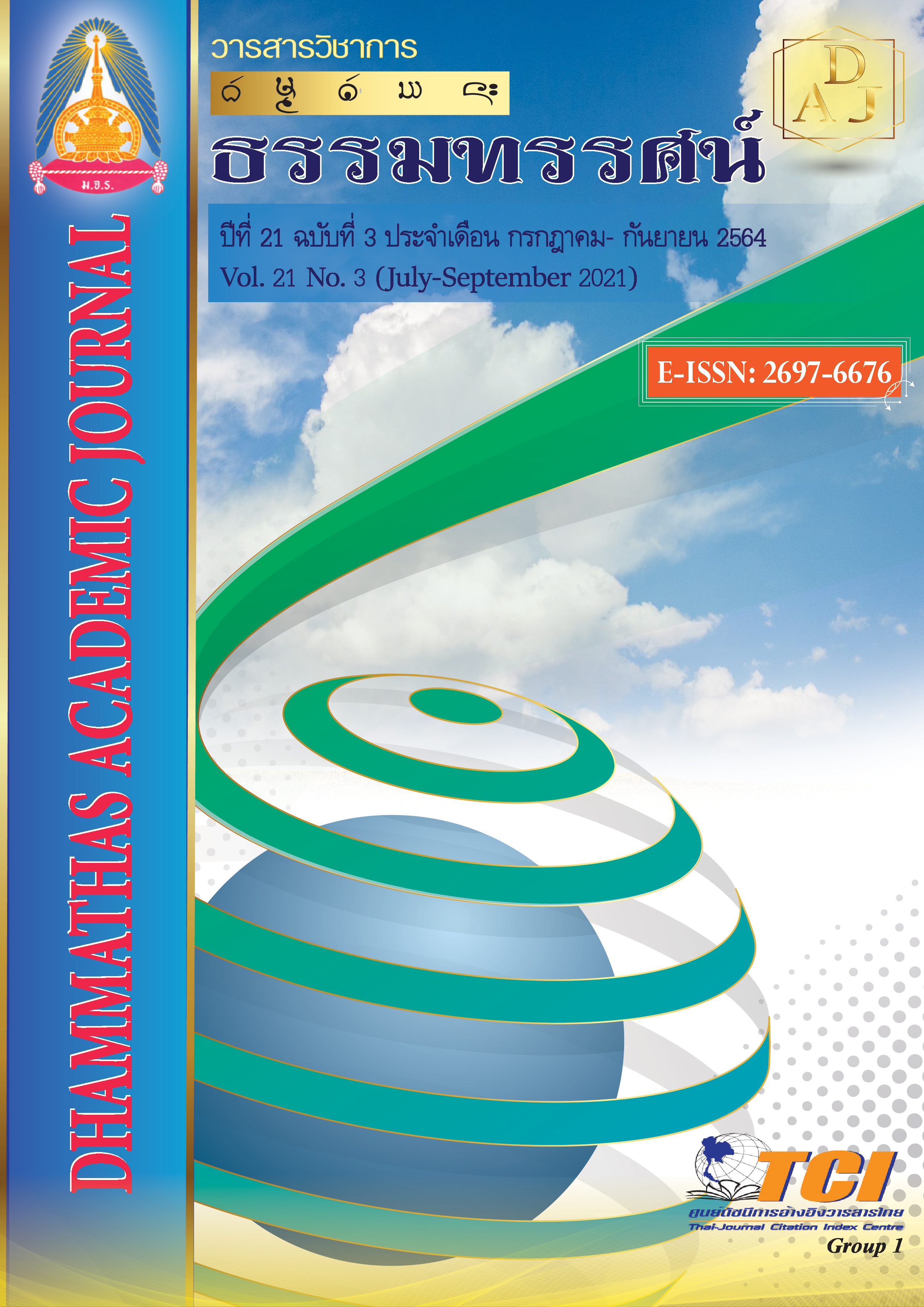The Effect of Performance Management System and Compensation Management on Employee Job Satisfaction: A Case Study of a Real Estate Development Company in Thailand
Main Article Content
Abstract
The purposes of this research are 1) to study the level and relationship between performance management system, compensation management and employee job satisfaction and 2) to study the effect of performance management system and compensation management on employee job satisfaction. This quantitative study gathered data using a questionnaire from 313 employees at a real estate development company in Thailand. The descriptive statistics and inferential statistics used for data analysis are percentage, mean, standard deviation, correlation analysis and multiple regression analysis.
The results from this study showed that:
1. The employees had an opinion towards the performance management system at the high level. Similarly, they had an opinion towards compensation management and job satisfaction at the high level. In addition, performance management system was moderately and positively correlated with employee job satisfaction at the statistical significance level of .01 (r = 0.58) while compensation management was relatively high and positively correlated with employee job satisfaction at the statistical significance level of .01 (r = 0.68).
2. The performance management system, particularly the goal setting and the reward system components had a significant impact on employee job satisfaction while the compensation management, particularly management of compensation, compensation for transactions, and compensation for relationship components had a significant impact on employee job satisfaction.
Article Details
References
กรกฎ พลพานิช. (2540). ปัจจัยที่มีอิทธิพลต่อความผูกพันต่อองค์การของพนักงานบังคับบัญชาและพนักงานวิชาชีพการตลาด บริษัท ปูนซีเมนต์ไทย จำกัด (มหาชน). (วิทยานิพนธ์วิทยาศาสตรมหาบัณฑิต). กรุงเทพฯ: มหาวิทยาลัยเกษตรศาสตร์.
จิรประภา อัครบวร. (2556). การศึกษาแนวโน้มงานทรัพยากรมนุษย์ พ.ศ. 2555-2556 (HR Trends 2012-2013). วารสารการพัฒนาทรัพยากรมนุษย์และองค์การ, 5(1), 4-29.
________. (2557). การศึกษาเปรียบเทียบแนวโน้มงานทรัพยากรมนุษย์ในประเทศอาเซียน ปี พ.ศ.2557-2558. วารสารการพัฒนาทรัพยากรมนุษย์และองค์การ, 6(2), 4-41.
________. (2562). การบริหารผลการปฏิบัติงานเชิงกลยุทธ์: เครื่องมือการพัฒนาองค์การ. (พิมพ์ครั้งที่ 2). กรุงเทพฯ: สถาบันบัณฑิตพัฒนบริหารศาสตร์.
จรูญศักดิ์ สุนทรเดชา. (2561). เทคนิคการบริหารค่าตอบแทนที่มีประสิทธิภาพ. วารสารสถาบันวิจัยพิมลธรรม, 5(1), 43-54.
ธวัชชัย สมตระกูล. (2557). ระบบการบริหารค่าตอบแทนของพนักงานธุรกิจดูแลรักษารถยนต์ที่มีผลต่อเป้าหมายรายได้ของธุรกิจ. (วิทยานิพนธ์วิทยาศาสตรมหาบัณฑิต). กรุงเทพฯ: สถาบันบัณฑิตพัฒนบริหารศาสตร์.
ปรียาพร วงศ์อนุตรโรจน์. (2544). จิตวิทยาการบริหารงานบุคคล. กรุงเทพฯ: พิมพ์ดีการพิมพ์.
ยุทธนา แซ่เตียว และทิพย์รัตน์ เลาหวิเชียร. (2560). อิทธิพลของการบริหารผลงานต่อทัศนคติในการประเมินผลและพฤติกรรมในการปฏิบัติงาน. วารสารวิชาการมหาวิทยาลัยกรุงเทพ, 16(1), 101-114.
Aguinis, H. (2013). Performance Management. (3rd ed.). New Jersey: Pearson Education.
Akaraborworn, C. T. (2018). HR Trends in Thailand 2017. NIDA Development, 58(2), 168-198.
El-Farra, M. M., & Badawi, M. B. (2012). Employee Attitudes toward Organizational Change in the Coastal Municipalities Water Utility in the Gaza Strip. Euro Med Journal of Business, 7(2), 161-184.
Hair, J. F., Black, W. C., Babin, B. J., & Anderson, R. E. (2010). Multivariate Data Analysis. (7th ed.). New Jersey: Prentice Hall.
Rees, G., & French, R. (2010). The Scope and Nature of Human Resource Management and Human Resource Development. London: CIPD Publications.

